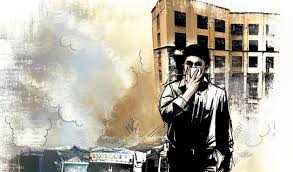
Despite measurable progress under the National Clean Air Programme (NCAP), Jammu and Kashmir continues to face unhealthy levels of PM10 pollution in its major urban centres. While Srinagar has recorded a 42.4% reduction in PM10 levels between 2018–19 and 2024–25, and Jammu saw a 21% drop, both cities still exceed the national safe limit of 60 μg/m³.
Recent data shows Srinagar’s PM10 concentration in 2024–25 stood at 76 μg/m³, while Jammu’s reached 124 μg/m³ — far above the National Ambient Air Quality Standard. These figures highlight the urgent need for continued regulatory action, deeper structural reforms, and improved enforcement.
Under NCAP, the Union Government has allocated ₹151.97 crore to J&K up to 2025–26, funding initiatives such as infrastructure upgrades, emission control, and scientific collaboration. The region now has one continuous and 44 manual air quality monitoring stations.
However, experts caution that progress will remain limited unless complemented by sustainable mobility plans, wider adoption of clean fuels, and strict regulation in construction and industry sectors. Seasonal factors like winter inversion and continued use of polluting fuels also hamper air quality improvements.
Despite implementation of Bharat Stage VI vehicle norms, single-use plastic bans, and tighter standards for over 80 industrial categories, core challenges — including vehicle congestion, open burning, and enforcement gaps — persist.
A key step forward is the upcoming Himalayan High Altitude Atmospheric and Climate Research Station at Patnitop, a joint initiative of the Forest Department and academic institutions. It aims to provide region-specific data for targeted interventions.
While over 25 cities across India have achieved more than a 40% drop in PM10 since NCAP’s launch, J&K’s gains remain fragile. Experts warn that without stronger commitment to clean transport, emissions control, and public awareness, air quality improvements could stall or reverse.
Air pollution in India causes over 12 lakh premature deaths annually. In J&K, ensuring clean air is not just an environmental necessity, but a public health imperative and a matter of basic rights, experts stressed.
Despite measurable progress under the National Clean Air Programme (NCAP), Jammu and Kashmir continues to face unhealthy levels of PM10 pollution in its major urban centres. While Srinagar has recorded a 42.4% reduction in PM10 levels between 2018–19 and 2024–25, and Jammu saw a 21% drop, both cities still exceed the national safe limit of 60 μg/m³.
Recent data shows Srinagar’s PM10 concentration in 2024–25 stood at 76 μg/m³, while Jammu’s reached 124 μg/m³ — far above the National Ambient Air Quality Standard. These figures highlight the urgent need for continued regulatory action, deeper structural reforms, and improved enforcement.
Under NCAP, the Union Government has allocated ₹151.97 crore to J&K up to 2025–26, funding initiatives such as infrastructure upgrades, emission control, and scientific collaboration. The region now has one continuous and 44 manual air quality monitoring stations.
However, experts caution that progress will remain limited unless complemented by sustainable mobility plans, wider adoption of clean fuels, and strict regulation in construction and industry sectors. Seasonal factors like winter inversion and continued use of polluting fuels also hamper air quality improvements.
Despite implementation of Bharat Stage VI vehicle norms, single-use plastic bans, and tighter standards for over 80 industrial categories, core challenges — including vehicle congestion, open burning, and enforcement gaps — persist.
A key step forward is the upcoming Himalayan High Altitude Atmospheric and Climate Research Station at Patnitop, a joint initiative of the Forest Department and academic institutions. It aims to provide region-specific data for targeted interventions.
While over 25 cities across India have achieved more than a 40% drop in PM10 since NCAP’s launch, J&K’s gains remain fragile. Experts warn that without stronger commitment to clean transport, emissions control, and public awareness, air quality improvements could stall or reverse.
Air pollution in India causes over 12 lakh premature deaths annually. In J&K, ensuring clean air is not just an environmental necessity, but a public health imperative and a matter of basic rights, experts stressed.
© Copyright 2023 brighterkashmir.com All Rights Reserved. Quantum Technologies